Queen's Speech brings Groundhog Day to Westminster
- Published
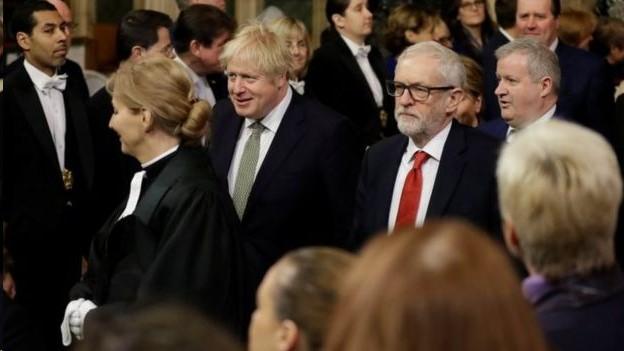
Boris Johnson and Jeremy Corbyn walked in silence to the House of Lords
What's new, what's hot and what's not?
One of the longest sessions of Parliament in British history, from June 2017 until October 2019, was followed by one of the shortest.
It is just nine weeks since we all assembled here at Westminster for the last Loyal Address, described at the time as fantasy, no more than Boris Johnson's pre-election wish list.
After a general election in which the Conservatives took nine of our Midlands marginal seats from Labour and transformed the composition of the House of Commons, so much has changed since then that the real fascination here today is to spot the difference between the two speeches, just two months apart.
Another 10 more government bills have been announced, confirming the government's new-found authority.
Chief among them, enshrining in law the extra spending for the NHS in England, a promise which helped to blunt Labour's principal campaign issue.
That pledge to spend an extra £34bn On NHS England and bring in 50,000 extra nurses appears to have done the trick.
No less eye-catching is the promise of an extra £70bn to be invested in infrastructure improvements in the Midlands and the North as part of the prime minister's pledge to level-up the regions in order reduce the chronic imbalances, including the productivity gap between London and the rest of the country.
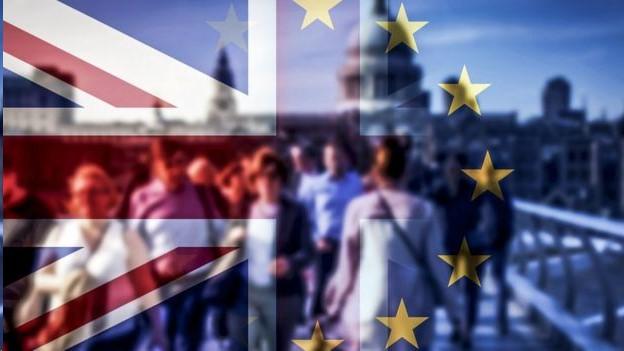
Brexit defines the Conservative government's to-do list
But of course it's Brexit, the issue which triggered the election, dominated the campaign and drove so many of those former Labour seats in Leave-voting areas of north Staffordshire and the Black Country into the clutches of the Conservatives that defines this government's to-do list.
When and if Labour have sorted out their own internal ructions, they will no doubt pounce on any government failures to match their brave talk with an exit from the EU which is delivered on time and which does not ruin the life chances of those who voted most enthusiastically for it.
Remember, the Conservatives now hold most of these new seats by relatively modest majorities.
So what's in it for us?
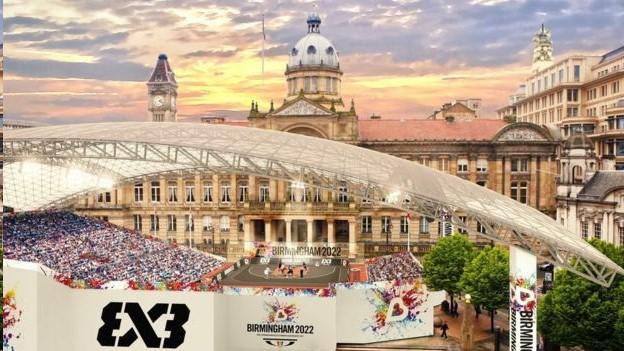
Basketball could be played in Birmingham's Victoria Square during the Commonwealth Games
Of the two biggest specific mentions for the Midlands, one is significantly more controversial than the other.
Yes, the plans for Birmingham's Commonwealth Games in 2022 may have their critics but don't expect the enabling legislation to be among the most hotly-contested debates in the Commons.
Much hotter for the government to handle will be the high speed rail proposals, where the prime minister faces one of his earliest and toughest decisions.
Ordering a review of the project, whose costs are now estimated to be soaring, on Mr Johnson's own admission "north of £100bn", may have enabled him, in effect, to park it during the campaign.
But the bitter dispute about it will be an early test of the awkward coalition the Conservatives have built to win the election: on the one side the predominantly rural, traditionally Tory shire county areas in Warwickshire and Staffordshire where many voters fear they will experience most of the pain and little of the gain from HS2.
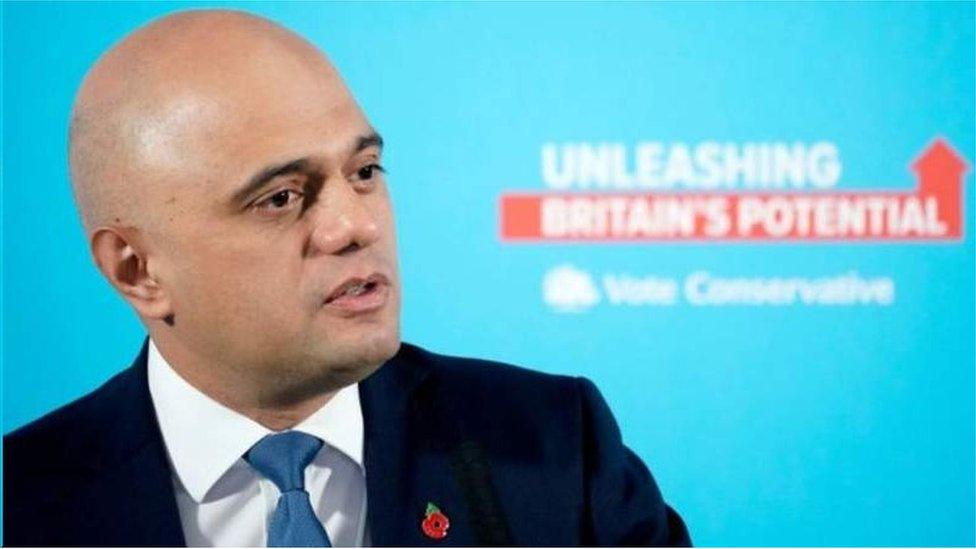
Chancellor Sajid Javid has built his reputation on prudence
And on the other, the cities including Birmingham where the Conservatives have won seats in the areas where the HS2 dividend is already showing its hand in the "crane counts".
But it's the challenge of breathing new life in many of those "left behind" places that switched their political allegiances which presents the government with one of its biggest domestic headaches.
I have seen for myself the boarded-up shop fronts and subdued market days in the Black Country and in the Potteries.
Businesses, small and large alike, are crying out for an overhaul of business rates which they say are hitting them hard in the face of the relentless rise and rise of online competition.
The one-year extension of business rate discounts promised in the Loyal Address will reduce their total rate bill by just 1%.
Remember, the Chancellor and Bromsgrove MP Sajid Javid has built his reputation on prudence.
Business rates are worth about £30bn a year to the Exchequer.
As the Queen herself put it: "My government will invest in public services and infrastructure while keeping borrowing and debt under control."
How many battles do they really need to fight?
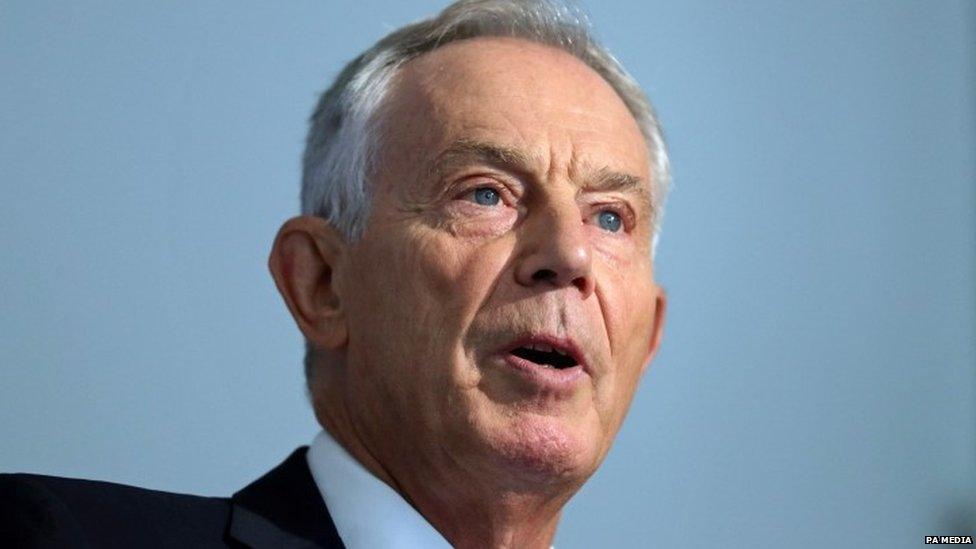
Tony Blair has been criticised for failing to capitalise sufficiently on the opportunities presented by his landslide victories in 1997 and 2001
When any government comes in with a large majority, it's generally accepted that they need to be as bold as they can be as early as possible, while the vanquished opposition parties are still licking their wounds.
Tony Blair has been criticised for failing to capitalise sufficiently on the opportunities presented by his landslide victories in 1997 and 2001.
With a hectic schedule of more than 30 bills set out in today's Queen's Speech, the government can hardly be accused of a lack of ambition.
Conversely, they may be open to the charge of opening-up too many battles on different fronts at the same time.
Take parliamentary boundaries for example.
This new Parliament brings with it a promise of a review.
We have too many urban constituencies with falling populations and too many large suburban and semi-rural ones with ever-growing numbers.
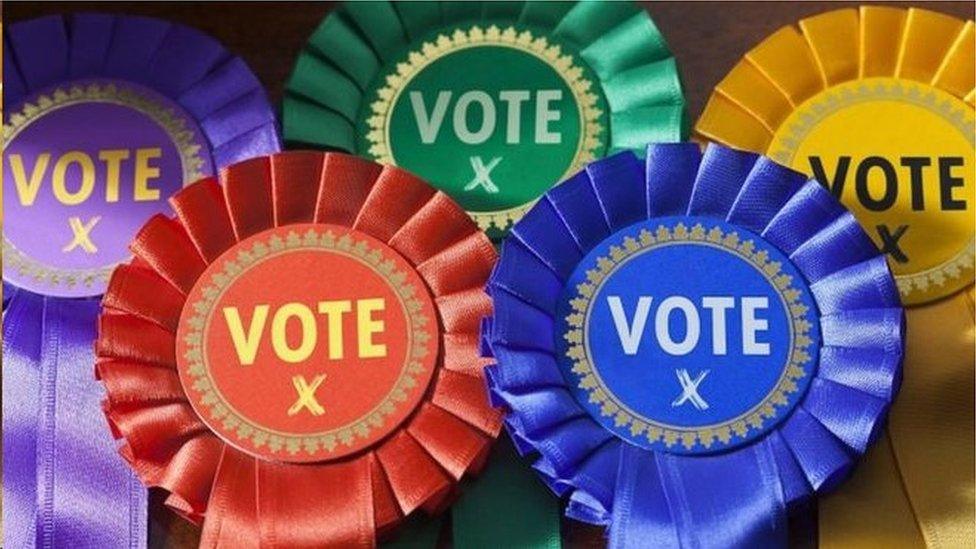
The coalition government tried to introduce a parliamentary boundary review
The coalition government tried to introduce a review, but it fell foul of a bitter dispute between the Conservatives and the Liberal Democrats.
No government since then has had either the longevity or the strength in Parliament to push one through.
Even though new boundaries would probably be worth an extra two dozen more seats to the Conservatives, reconfiguring constituencies around 50 fewer parliamentary seats would rekindle those grassroots protests about crossing county lines and "failing to represent community loyalties".
It would also be hotly contested in Parliament itself, not just among Labour MPs fearing the loss of more seats but even by many Conservative MPs who may have to contemplate the "chicken run" to the seat next door.
Does the self-professed "People's Government" really want to pick so many fights just when they will have work cut out delivering their core agenda to those unlikely converts in unexpected places who have lent, rather than given, them their support?
Boris Johnson's party fought hard to win their extra seats in blue-collar areas.
Labour can be expected to fight just as hard to win them back, ready to pounce on any government failures to deliver their ambitious agenda for new opportunities where there are so few right now.
As one voter in Stoke-on-Trent told us last Friday: "Just because I've voted Conservative does not make me a Tory."
